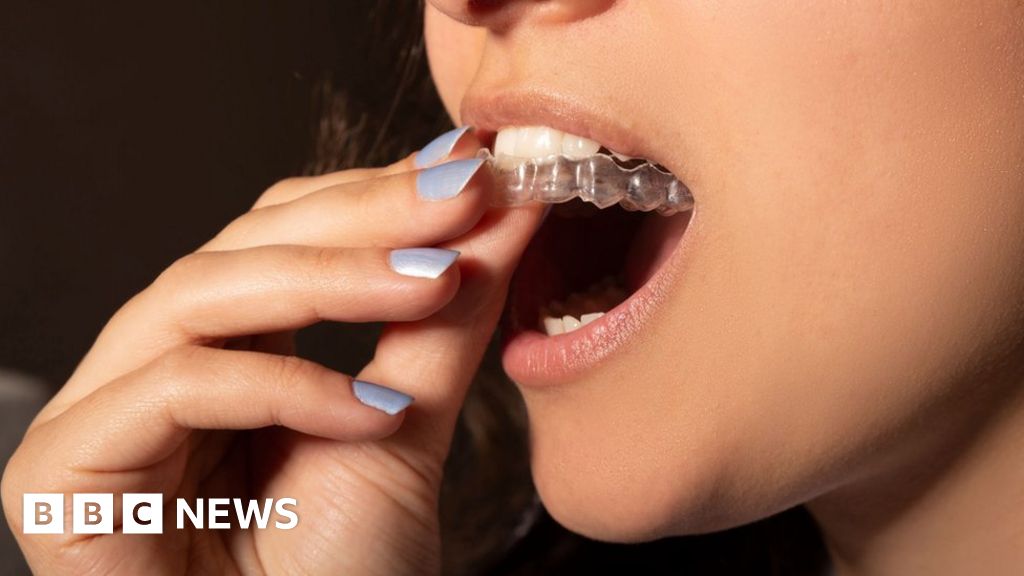Mohammad Ahmad, a 17-year-old from New Jersey, signed up for Smile Direct Club in October, just a few weeks after the teeth straightening firm declared bankruptcy.
He was enticed, he said, by a big discount on the company’s invisible braces and assured that the financial problems wouldn’t affect operations.
But Mohammad never received the clear plastic aligners he was promised after the company shut down in December, leaving him, and thousands of customers like him, in the lurch.
But Mohammad never received the clear plastic aligners he was promised after the company shut down in December, leaving him, and thousands of customers like him, in the lurch.
It was an ignominious end to the Tennessee-based business, which once had a market value of more than $8bn and had promised to disrupt traditional dentistry with lower cost, remotely- supervised care.
The concept convinced more than two million customers. For Mohammad, who had already had braces, he just wanted to address some mild shifting that occurred after he failed to wear his retainer as instructed.
But almost from its start, Smile Direct Club was defending itself from critics raising concerns about its practices.
It was embroiled in legal battles with business groups representing traditional dentists and orthodontists, who said its remote treatment, often provided after customers mailed in impressions of their mouths they had taken at home, provided inadequate care, and accused the firm of misleading customers.
Prominent investors, such as Hindenburg Research, which is known for betting against companies, had also voiced alarm, accusing Smile Direct Club of “cutting corners” and warning that it would “wind up as a case study in why it’s a bad idea to invest in a company that attempts to fit a complex, dangerous medical process onto a low-cost, high volume assembly line”.
Mohammad Ahmad, a 17-year-old from New Jersey, signed up for Smile Direct Club in October, just a few weeks after the teeth straightening firm declared bankruptcy.
But Mohammad never received the clear plastic aligners he was promised after the company shut down in December, leaving him, and thousands of customers like him, in the lurch.
He was enticed, he said, by a big discount on the company’s invisible braces and assured that the financial problems wouldn’t affect operations.
It was an ignominious end to the Tennessee-based business, which once had a market value of more than $8bn and had promised to disrupt traditional dentistry with lower cost, remotely- supervised care.
But Mohammad never received the clear plastic aligners he was promised after the company shut down in December, leaving him, and thousands of customers like him, in the lurch.
But Mohammad never received the clear plastic aligners he was promised after the company shut down in December, leaving him, and thousands of customers like him, in the lurch.
It was an ignominious end to the Tennessee-based business, which once had a market value of more than $8bn and had promised to disrupt traditional dentistry with lower cost, remotely- supervised care.
The concept convinced more than two million customers. For Mohammad, who had already had braces, he just wanted to address some mild shifting that occurred after he failed to wear his retainer as instructed.
But almost from its start, Smile Direct Club was defending itself from critics raising concerns about its practices.
It was embroiled in legal battles with business groups representing traditional dentists and orthodontists, who said its remote treatment, often provided after customers mailed in impressions of their mouths they had taken at home, provided inadequate care, and accused the firm of misleading customers.
Prominent investors, such as Hindenburg Research, which is known for betting against companies, had also voiced alarm, accusing Smile Direct Club of “cutting corners” and warning that it would “wind up as a case study in why it’s a bad idea to invest in a company that attempts to fit a complex, dangerous medical process onto a low-cost, high volume assembly line”.
#wrong #Smile #Direct #Club
Note:- (Not all news on the site expresses the point of view of the site, but we transmit this news automatically and translate it through programmatic technology on the site and not from a human editor. The content is auto-generated from a syndicated feed.))



